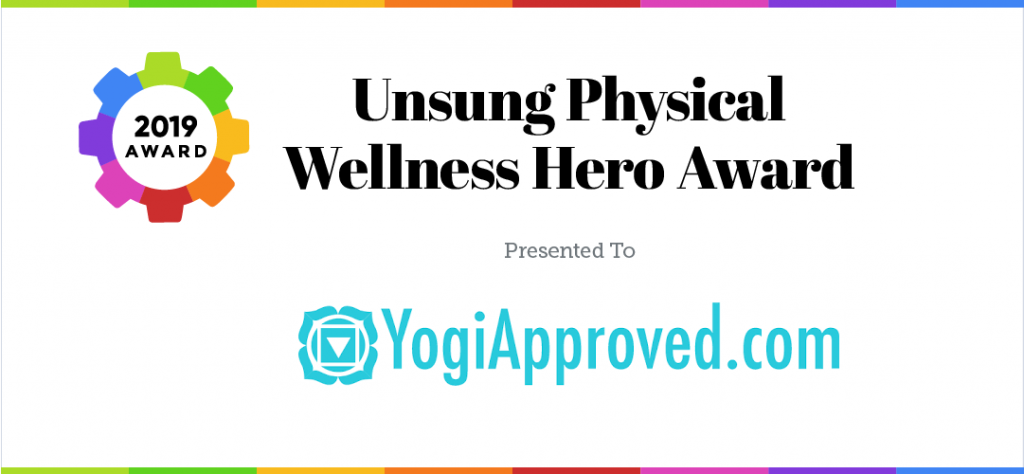Physical wellness is vital to bodily, mental, and emotional well-being. Someone who’s physically well can perform daily activities without excessive fatigue or undue stress. But what does it mean to be physically sound—exactly? To know that, one must first understand what it’s not. To be in good physical condition has nothing to do with the body beautiful or extreme levels of fitness [1].
The American Dilemma
Most Americans don’t move enough to maintain a healthy, physical body. That’s according to a Gallup study taken more than ten years ago, and the situation has since gotten worse. Only 38% of those asked had exercised—or been physically active—in recent days.
A more in-depth survey studied the behavior of 400,000 Americans nationwide. Only 27% of those met the government’s guideline of 30+ minutes of physical activity five days a week [2].
More than Just Exercise
Physical wellness is not only about exercise, though activity is a vital part. Most online searches bring up results that suggest people should eat less and move more. That’s become something of a cliché in recent times. OK, modern society has gotten increasingly sedentary compared to previous generations. And yes, food consumption is far too high, but it’s not the whole picture.
Physical well-being is also about forming new habits, avoidance, prevention, and lifestyle changes [3].
What You Need to Know
There’s a minefield of information and misinformation out there on this topic. Micro analysis is always confusing and never helpful. So, the purpose of this piece is to simplify the definition of physical well-being. Maintenance of the physical body needs regular activity, proper nutrition, sleep, hygiene, and relaxation. When a person embraces all the above, great things can come to pass.
The direct relationship between the physical and mental workings of the human body is well-documented. There’s truth in the saying, healthy body, healthy mind [4].
How Physically Well Are You?
Consider the five points below and ask yourself which of the boxes you can honestly check.
Do you:
- Sleep well?
- Eat balanced, nutritious meals more often than not?
- Get plenty of regular physical activity?
- Maintain good personal hygiene?
- Switch off and relax when necessary?
Most of us can improve in at least one or more of the areas above. To realize physical well-being is about maintenance as much as achievement. It may also require sacrifices where bad habits are involved. Some examples are smoking tobacco, excessive alcohol consumption, and routine snacking. Personal physical care must be a part of healthy lifestyle behavior if it’s to work.
Why Physical Wellness Is So Important
The obvious answer is to feel good and to prevent the onset of illness and disease. A healthy body also improves mental functions as well as physical. You don’t have to be physically ill or diseased to be unwell, though. There are four, hugely significant reasons why physical wellness is so critical [5].
- Ensures proper bodily functions and thus improves longevity and wards off illness
- Improves mood and mental alertness
- Keeps internal and external organs in check
- Maintains energy levels

The rest of this piece looks at the five ways to achieve and maintain your physical well-being.
#1 Sleep Better
Sleep is vital to normal brain function and body systems. We now know that chronic sleep deprivation or poor quality sleep has many negative health implications. Those who sleep well perform better in all areas of life. They maintain healthier physical, mental, and emotional states than those who lack adequate slumber. Overly tired Americans are unlikely to embark on a new exercise regime [6].
Tips for a better sleep
Sometimes, a simple change in one’s bedtime routine is enough to improve sleep. The National Sleep Foundation has some useful suggestions that are known to promote better slumber [7].
- Decide on a regular sleep schedule (including weekends) and stick to it
- Expose your eyes to bright daylight in the morning
- Avoid daytime napping when possible, especially after 3pm
- Avoid overly bright lighting an hour or more before bedtime
- Take regular exercise. Avoid strenuous workouts near bedtime if you have sleep issues
- Create a relaxing, pre-sleep routine an hour or so before bed
- Avoid drinking hot or cold caffeinated beverages after dinner
- Avoid alcoholic drinks before bedtime
- Avoid large meals or heavy snacks close to bedtime
- Avoid any medications—where possible—that may disrupt sleep
- Ensure your bedroom is cool, comfortable, and free of clutter or other distractions
- Get up and do something relaxing—in low light—if you can’t sleep after 20 minutes
Check the points above against your bedtime routine if you have sleep issues. Often, a few small changes can make the world of different [8], [9], [10], [11], [12], [13], [14], [15], [16], [17].
Many Americans can’t sleep because of underlying medical problems. It’s advisable to look toward professional help if none of the homemade solutions above work [18].
#2 Eat Well for Energy, Growth, and Repair
To eat well doesn’t mean having whatever you want whenever you want it. Americans today overeat far too often. Also, snacking between meals is a modern-day phenomenon that’s damaging the physical well-being of a nation. Furthermore, most snacks consumed in the US are high in calories yet have little nutritional value. Thus, eating well is about maintaining nutritional balance [19].
Nourishing foods are vital to bodily functions and benefit all people of any age. Proper nutrition supports growth, aging, repair, and helps to maintain body weight. A healthy diet also lessens the risk of 20th-century chronic diseases. There’s every reason to eat well, and no good reason not to [20].
Healthy eating 101
Search online for nutritional help, and you get thousands of well-meaning authors offering advice. Don’t let it overwhelm you. Below are six simple tips that guarantee healthier eating:
- Get to know what constitutes healthy, balanced meals (see below)
- Only eat breakfast if you feel hungry
- Avoid harmful processed foods whenever possible
- Find time to relax and enjoy mealtimes; eat slowly
- Stay hydrated throughout the day (many Americans don’t)
- Avoid snacking when you’re not hungry

It doesn’t take long to form healthy, balanced eating habits with nutritious meals. A wholesome plate consists of a quarter carbohydrate, a quarter protein, and half vegetables. The food choices are endless. Don’t be afraid to introduce healthy fats into the diet either [21], [22], [23], [24], 25], [26].
#3 Physical Activity
Being physically active doesn’t mean torturous workouts that rob your valuable time. There is a variety of different ways to get moving, and they don’t have to involve hours down at the local gym. Regular physical activity can be something to relish with a slight change in mindset.
Here are a handful of the many creative ways that can make the daily workout enjoyable:
- Get outdoors and play with the kids
- Take the dog on longer walks
- Commit to using the stairs
- Walk or cycle instead of drive when possible
- Dance
- Many others with a little creative thinking
The government recommendation is just 30 minutes a day, five days a week. Those who get into the habit of physical activity tend to do much more because they want to [27].
The real benefits of regular physical activity
To keep the body moving contributes to the maintenance of physical wellness. There’s nothing to lose and everything to gain by being regularly active (see below).
- Increased energy levels
- Makes you feel great, improves mood, and lessens the effects of depression
- Assists in weight loss and aids weight maintenance
- Helps to maintain healthy muscles, joints, and bones
- Promotes better sleep
- Reduces the risk of major diseases and chronic conditions like hypertension
- Increases longevity and healthier aging
- Physically active Americans enjoy a better sex life
The hardest part for physically inactive people is to make a start. The best approach here are small commitments at first, and then build on that as momentum takes hold [28].
#4 Personal Hygiene
Personal hygiene plays a vital role in physical wellness. Most Americans brush teeth, shower, and wash hands after visiting the bathroom on autopilot. These are the clean-living habits that parents drum into kids from a young age. Still, it’s easy to skip personal hygiene when time is in short supply or desires take over. That’s when people are most likely to get sick.
Negative costs of poor personal hygiene
Poor appearance, body order, and bad breath are the things that can have a negative impact at a social level. Lack of genital hygiene and awareness can—and often does—cause problems in relationships. Sexually transmitted diseases or STDs can be irritating, embarrassing, and potentially life-threatening. STDs are on the increase in the US despite all the awareness campaigns [29].
Good personal cleanliness is vital for maintaining physical wellness. It’s an effective way to protect you and those around you from a range of illnesses, irritations, and embarrassment [30].
#5 Learn to Relax
The physical body comes under immense strain when it’s in a stressful state. Most Americans suffer from pressure at times, and that’s normal. Some people thrive on it. Chronic stress, though, is harmful to health and a significant threat to physical wellness. Below are 14 health dangers. These are things that can materialize from chronic stress, as outlined by the American Institute of Stress [31].
- Depression
- Erectile dysfunction (ED)
- Fertility problems (men and women)
- Heartburn
- High blood pressure
- Increased risk of heart attack
- Insomnia
- Low sex drive
- Missed periods
- Muscle tension
- Rapid breathing
- Stomach aches
- Tension headaches
- Weakened immune system

Americans work more and relax less than their European cousins. And US workers endure some level of stress most of the time according to a survey by Paychex. There are various reasons for this, but too much work and too little family time are the main contributors [32].
Managing stress levels
There are various ways to manage stress better and keep levels low. The art of relaxation is one of the most effective approaches. It costs nothing to try deep breathing exercises, meditation, and mindfulness. Set aside a little ‘Me Time’ for a few minutes each day to practice. The results can be life-changing for those who adhere to a regular destress regime [33].
Give your body a break, and try not to let stress dominate. Track your stressors and come up with healthy responses to them. Talk to others about how you feel, and get support if you need it. Your physical, mental, emotional, and spiritual wellness deserve it.
Know Your Health Numbers
Physical well-being is about caring for what you can’t see as well as what you can. Harmful bodily states can quietly fester without a person’s awareness. That’s why every American should get to know their numbers. Simple, non-invasive tests can tell if you’re in good condition or have potential health risks.
There are five medical markers to consider:
- Blood pressure readings
- Cholesterol levels
- Blood sugar
- Body mass index
- Waist circumference
According to a survey by Cleveland Clinic, most Americans don’t know their health numbers. Only 38% know their blood pressure, yet 46% know their bank balance. Here are some other startling facts:
- Fewer than 18% of Americans know their BMI or Body Mass Index
- Only 12% know their LDL (bad) cholesterol reading
- Just 11% know their fasting glucose levels
- Women are less likely to know key health metrics than their male counterparts
The American Heart Association (AHA) has several online tools to help track critical health numbers. Periodic checks of these are quick, painless, and potentially life-saving [34] [35].
An Unsung Hero of Physical Wellness: Yogi Approved

Even if yoga isn’t your cup of tea, we strongly recommend checking out Yogi Approved if you’re looking to improve your general physical wellness. The site offers comprehensive tips on how to be kinder to your body, from exercise to mindfulness to healthy eating, even travel and sex. True physical wellness goes beyond simply changing your gym routine or adjusting your eating habits, it involves many aspects of your daily life, and Yogi Approved can help you tackle all those changes.
People are often intimidated by the idea of improving their physical wellness, but Yogi Approved is approachable an easy-to-follow, and their advice works for real people with busy schedules and plenty of bad habits that have been cemented over the years. Plus, if you do like yoga, they offer plenty of online classes as well.
Resources
- https://sites.psu.edu/healthypennstate/2018/02/26/physical-wellness-what-it-is-why-its-important/
- https://news.gallup.com/businessjournal/127211/exercise-sleep-physical-wellbeing.aspx
- https://www.aana.com/practice/health-and-wellness-peer-assistance/about-health-wellness/physical-well-being
- https://www.nuigalway.ie/health-wellbeing/healthybodyhealthymind/
- https://introwellness.com/health/what-is-physical-wellness/
- https://www.ncbi.nlm.nih.gov/pmc/articles/PMC5707986/
- https://www.sleepfoundation.org/press-release/americans-bedrooms-are-key-better-sleep/
- https://getsom.com/blogs/sleep/the-importance-of-sticking-to-a-sleep-schedule
- https://www.verywellhealth.com/morning-sunlight-exposure-3973908
- https://www.sleep.org/articles/sleeping-during-the-day/
- https://www.sciencedaily.com/releases/2011/01/110113082716.htm
- https://www.sleepfoundation.org/articles/best-time-day-exercise-quality-zzzs
- https://www.tuck.com/bedtime-routines/
- https://www.sleephealthfoundation.org.au/pdfs/CaffeineAlcohol-0713.pdf
- https://www.sleepfoundation.org/articles/how-medications-may-affect-sleep
- https://www.verywellhealth.com/the-importance-of-your-sleep-environment-3014944
- https://health.clevelandclinic.org/5-strategies-that-will-help-you-get-back-to-sleep/
- https://www.consumerreports.org/sleep/why-americans-cant-sleep/
- https://www.ars.usda.gov/ARSUserFiles/80400530/pdf/DBrief/4_adult_snacking_0708.pdf
- https://www.medicalnewstoday.com/articles/160774.php
- https://www.nutrition.org.uk/healthyliving/healthydiet/healthybalanceddiet.html
- https://blogs.bmj.com/bmj/2019/01/30/tim-spector-breakfast-the-most-important-meal-of-the-day/
- https://www.precisionnutrition.com/all-about-slow-eating
- https://edition.cnn.com/2017/09/27/health/benefits-of-water-and-fluids/index.html
- https://www.forbes.com/sites/peterubel/2016/09/30/eating-when-youre-not-hungry-could-be-more-harmful/
- https://www.heart.org/en/healthy-living/healthy-eating/eat-smart/fats/dietary-fats
- https://www.health.qld.gov.au/news-alerts/news/30-ways-to-get-active-exercise-fun
- https://www.mayoclinic.org/healthy-lifestyle/fitness/in-depth/exercise/art-20048389
- https://www.nbcnews.com/health/sexual-health/stds-continue-rapid-rise-u-s-setting-new-record-cdc-n904311
- https://www.betterhealth.vic.gov.au/health/conditionsandtreatments/personal-hygiene
- https://www.stress.org/how-stress-affects-your-body
- https://www.cnbc.com/2017/03/29/most-american-workers-are-stressed-most-of-the-time.html
- https://www.apa.org/helpcenter/work-stress
- https://www.heart.org/en/health-topics/diabetes/prevention–treatment-of-diabetes/know-your-health-numbers
- https://newsroom.clevelandclinic.org/wp-content/uploads/sites/4/2017/02/Love-Your-Heart-Survey-2017/

Andy Williams
B.Sc., Ph.D.
Andy has a first class honours degree in Biology from Hull University, a Ph.D from Cardiff University, and a Postgraduate Certificate in Education from Birmingham University. He is on a life-long quest to feel more awesome 😉